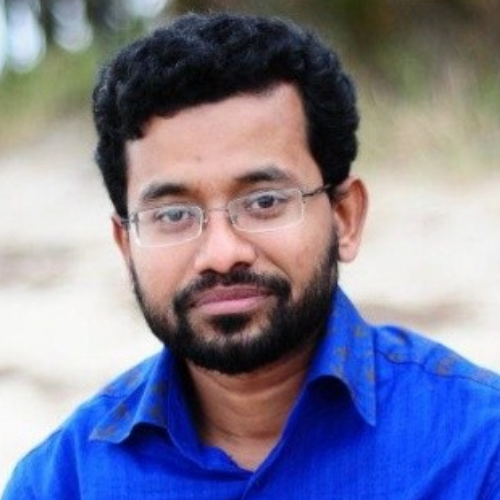
IWA Publishing in conjunction with the International Water Association’s Young Water Professionals is happy to announce a new initiative spotlighting the work of Young Water Professionals and showing how the work published in IWA Publishing Journals can be useful to those beginning their careers in the water sector.
Our fifth spotlight blog is from Kazi Nazmul Hasan, a lecturer in Electrical Engineering at RMIT University. Kazi was selected for this blog post after attending a YWP Conference. You can connect with Kazi on LinkedIn.
Kazi had access to our entire journal portfolio for one month, and picked out some interesting papers to discuss, read his thoughts below! A big thank you to Kazi for participating!

Hello, I am Kazi. I joined as a lecturer in Electrical (Power Systems) Engineering at RMIT University, Australia in 2018. Prior to joining RMIT University, I was a research associate between 2014 and 2018 at the University of Manchester, UK. I obtained my PhD and MEng degree from The University of Queensland, Australia and University of Tasmania, Australia in 2013 and 2009, respectively. I have contributed to multiple funded projects on electrical power systems in Australia, UK and the European Union.
How I became involved with the water industry is interesting. As a researcher in electrical power system areas, I was involved in a project on electricity profiling and demand management with local water utilities. I then realized that water utilities are big consumers of electricity and by employing appropriate tools, techniques and strategies, water utilities can operate more economically. Subsequently, these benefits can be transferred to their customers. Hence, effective electricity profiling and planning for pollution-free electricity for water utilities is one of my research priorities.
In this perspective, my topics of interest are electricity demand management, demand forecasting, energy consumption reduction, renewable power generation, optimal power system design, and energy audits for water and wastewater treatment plants. On these topics, I have reviewed papers from Water Supply, Water Practice & Technology, Journal of Water, Sanitation and Hygiene for Development, Journal of Water Supply: Research and Technology – AQUA, and Water Science & Technology. Below I would like to highlight five selected papers from the abovementioned Journals on the abovementioned topics:
In Water Supply, Groppo et. al. (2019) presented a paper on urban water demand forecasting by employing artificial intelligence techniques. This work is important as water demand forecasting is a significant issue and improvement in forecasting tools will facilitate efficient system operation. This research covers the mathematical models developed using standard statistical techniques, such as linear regression or time-series analysis, or techniques based on Soft Computing such as Machine Learning and Artificial Intelligence methodologies.
In Water Practice & Technology, Azimi et. al. (2017) presented their research on energy consumption optimization, to reduce costs and associated environmental impacts. The energy system optimization is critical for wastewater treatment plants (WWTPs) as electric power has emerged as the leading energy source in WWTPs and biological treatment processes (aeration) as the main consumers. In this work, two stages of optimization, one on the operating cost and the other on the process and resources, have been discussed.
In the Journal of Water, Sanitation and Hygiene for Development, Wibowo et. al. (2020) presented a renewable solar thermal/photovoltaic based water treatment plant for remote areas with low population, poor geographical accessibility, and lack of electricity. These types of pollution-free technology may be suitable for many off-grid remote communities. This case study presented a techno-economic analysis for a remote Indonesian village.
In the Journal of Water Supply: Research and Technology-Aqua, Mulholland et. al. (2015) discussed a multi-objective optimization approach to move water through a reservoir network in such a way as to meet consumer demands and level constraints, minimise the cost of electricity, and minimise the loss of chlorine. In this approach, water flows are balanced by linear programming (LP) and a genetic algorithm is used to obtain the optimal solution.
In Water Science & Technology, Foladori et. al. (2015) presented an energy audit in wastewater treatment plants (WWTPs) to reveal large differences in the energy consumption in various stages. This research identifies several options for reducing energy consumption in small WWTPs, and it recommends that the automation approach becomes mandatory in lighting and electrical heating to increase the efficiency of the WWTPs.
Overall, the objective of my research is to identify opportunities for water utilities to achieve reliable, affordable and clean electricity to operate WTPs and WWTPs. I am sure, in this journey, we will review many more articles on these topics from IWA publishing and I will meet many of you at different IWA sponsored events. Take care! Cheers!
All the best,
Kazi Hasan
kazi.hasan [at] rmit.edu.au
School of Engineering
RMIT University, Melbourne, VIC, Australia
List of References:
Gustavo de Souza Groppo, Marcelo Azevedo Costa, Marcelo Libânio; Predicting water demand: a review of the methods employed and future possibilities. Water Supply, December 2019; 19 (8): 2179–2198.
S. Azimi, V. Rocher; Energy consumption reduction in a waste water treatment plant. Water Practice and Technology, March 2017; 12 (1): 104–116.
Arsanto Ishadi Wibowo, Keh-Chin Chang; Solar energy-based water treatment system applicable to the remote areas: Case of Indonesia. Journal of Water, Sanitation and Hygiene for Development, June 2020; 10 (2): 347–356.
Michael Mulholland, M. Abderrazak Latifi, Andrew Purdon, Christopher Buckley, Christopher Brouckaert; Multi-objective optimisation of the operation of a water distribution network. Journal of Water Supply: Research and Technology-Aqua, May 2015; 64 (3): 235–249.
P. Foladori, M. Vaccari, F. Vitali; Energy audit in small wastewater treatment plants: methodology, energy consumption indicators, and lessons learned. Water Science & Technology, September 2015; 72 (6): 1007–1015.